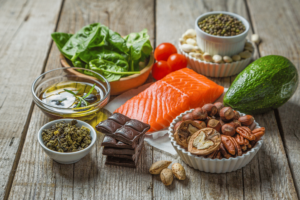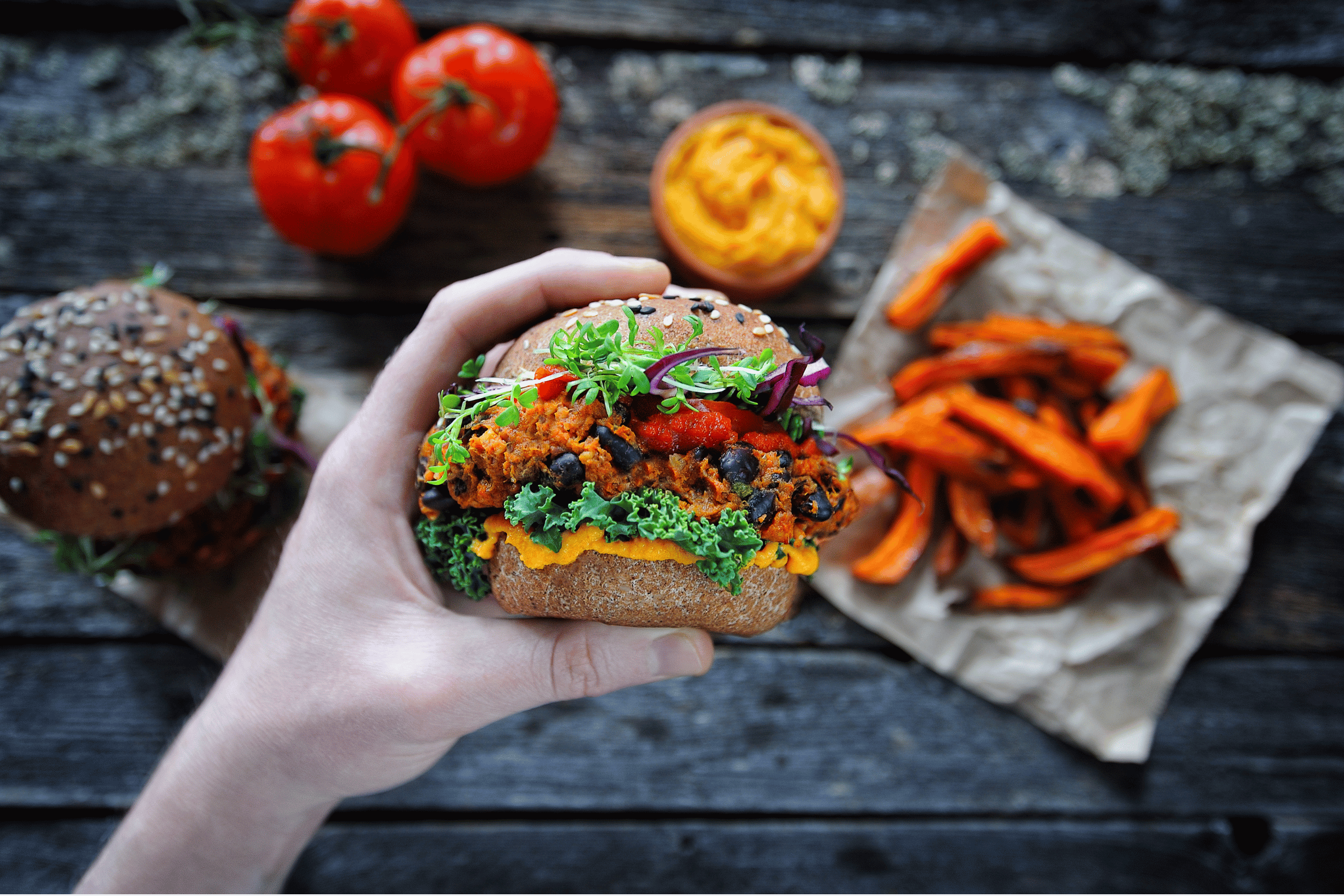Wellness Check
Your Healthy Eating Habits Start with Home Cooking
Apr 2023 | By Rose Reisman
How to Cook More Often from Home
Nutrition is important at any age, but our needs change over time, as does our metabolism, taste and lifestyle. From 55 years of age plus, we have to focus on our health in order to reduce or prevent the risk of heart disease, diabetes type 2, obesity, metabolic syndrome, high blood pressure, high cholesterol, osteoporosis and various cancers caused by lifestyle. This translates into increasing our calcium, vitamin D, B12, potassium, fibre, potassium and healthy fats. At the same time, we should focus on reducing our saturated fats, sugar and sodium. This is not always an easy change if you haven’t been eating well in your earlier years. We can often eat poorly when we’re younger with no ramifications.
Your best way to achieve these eating goals is to try and cook more at home. Take-out food, fast food, packaged food and restaurant fare always contain more sodium, bad fats and sugar than what you would prepare from home.
What to Watch for In-Home Cooking
Salt
As we age, our taste buds lose their impact, which is why you might be adding more salt to your meals. But this adds to the risk of heart disease, stroke and kidney damage. Do you need to remove the salt from the kitchen table completely? Absolutely not! If following a recipe, cut the sodium amount in half or don’t add the salt while cooking and sprinkle some salt over the finished meal. I find that with sea salt, the coarser granules give a much more satisfying taste than the smaller granular table salt.
Watch the amount of soy sauce you use and buy the lower sodium varieties, or use products such as Braggs or Coconut Aminos that have very little sodium and are a great substitute for traditional soy sauce. Packaged seasoning and sauce also have a higher amount of sodium. Try substituting garlic, lemon juice, various kinds of vinegar, and dry and fresh herbs and spices for the salty products.
Salt is also hidden in store-bought breads, soups, processed meats, cheese, canned foods and snacks such as chips and nuts.
Saturated Fats and Healthy Fats
 Saturated fats increase heart and stroke disease. These are found in marbled meats, cheese, packaged desserts, butter and higher-fat dairy products. Good fats, monounsaturated and polyunsaturated fats are good for you in moderation. They are still high in calories, which can lead to extra unwanted pounds. Go for fish, nuts and healthy vegetable oils, such as extra virgin olive oil.
Saturated fats increase heart and stroke disease. These are found in marbled meats, cheese, packaged desserts, butter and higher-fat dairy products. Good fats, monounsaturated and polyunsaturated fats are good for you in moderation. They are still high in calories, which can lead to extra unwanted pounds. Go for fish, nuts and healthy vegetable oils, such as extra virgin olive oil.
Instead of butter in soups, sauces and desserts, I use a healthy vegetable oil; for cream, I substitute yogurt, milk or evaporated milk.
Non-Stick Pans
Using a non-stick fry pan to avoid using excess fat and for quick clean-up is safe, providing that your Teflon pans were not made before 2013 when dangerous chemicals were used to produce the non-stick finishing. Be sure the label says PFOA free.
Overcooking Vegetables
It’s very common for us to overcook our vegetables. Often, it’s due to digestive issues since crisper vegetables may upset our gut, especially as we age. But there’s no easier way to destroy vitamins, minerals and antioxidants than boiling them to no end! Also, peeling certain vegetables remove the nutritious skin, which contains so much fibre and vitamins and minerals. Just scrub the skin to remove any sediment. When boiling, use only an inch of water or steam, microwave or stir fry.
What to Eat Over the Age of 55
With better weather coming, we feel more inspired to eat healthier. Here are my recommendations for improving our general health, energy and preventing disease:
Eat More Lean Protein
As we age, lean protein is a key food to increase. Protein will help maintain strength, muscle mass and bone health. Lean beef, pork, chicken and fish are your best choices. Sustainable fish is the lowest in fat and high in omega-3 fatty acids which can lower our bad cholesterol. Always remove the skin of chicken before eating to minimize the saturated fats.
Eat More Plant-Based Proteins


Plan Your Meals
Without planning your meals and times to cook, you’ll always be left in a vulnerable situation where you either eat fast food or order in, leading to not the healthiest diet. Plan simple meals such as one-sheet pan meals. For example, chicken and vegetables roasted at the same time. Use leftovers for next-day lunches or for freezing. Buy a whole rotisserie chicken and use the remainder for fried rice, chicken sandwiches or soups or stews. This also becomes more economical.
Speak with a Nutritionist
If you are confused about what foods are better or worse to consume, ask to speak with a nutritionist to help plan your meals and shopping lists. They can also assist in better eating with respect to any chronic health issues. Everyone’s diet is unique to them. The key is to cook meals with less sodium, less saturated fats and focus on increasing your vitamin D, B12, fibre, lean protein, calcium and potassium.
Attend a Cooking Class in your Community


Summary
The key is to include the following tips on your journey to healthy eating.
- Eat mostly whole foods, not packaged and processed. Fresh or frozen fruits; vegetables; whole grains; lean proteins and healthy fats.
- Avoid fast food due to the excess sodium, fat and sugar which leads to chronic disease
- Have vegetables or fruit at each meal and for snacks.
- Avoid sugar or artificially sweetened beverages – water, milk, tea or coffee is always better.
- Planning your meals won’t leave you stranded with only fast food choices.



